Re entrant corner [REC] - jcgomezz/Building_taxonomy GitHub Wiki
An L-, U-, E- or other (in plan) shaped building where two wings may oscillate out-of-phase, leading to large shear stresses in floor and/or roof diaphragms.
If the plan setback is at least 15% of both plan dimensions, then the setback is considered to form a re-entrant corner.
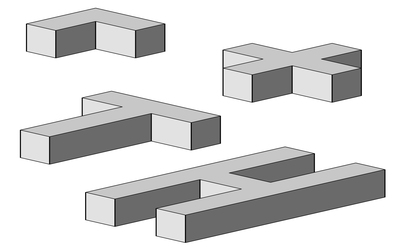
Examples of building shapes with re-entrant corners (A. Charleson, Seismic Design for Architects, Architectural Press 2008, p133 fig. 8.10)
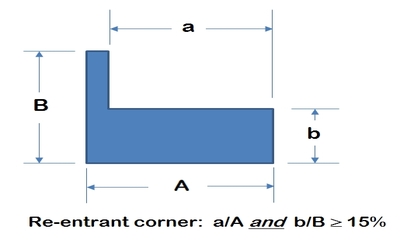
This diagram illustrates the principle that a 15% plan setback is required in both directions for it to be considered a re-entrant corner.
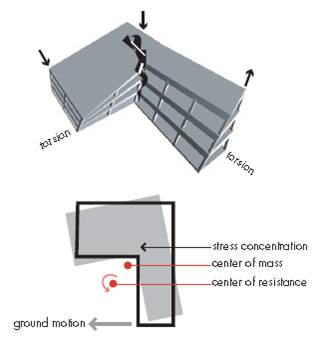
Movement of the wings of an L-shaped building during an earthquake results in high shear stresses combined with a stress concentration at the re-entrant corner; this is aggravated by torsional effects which develop since the center of mass and the center of rigidity cannot coincide in this form. (FEMA 454)
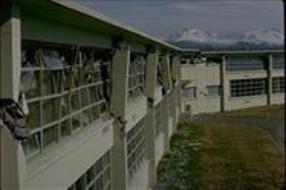
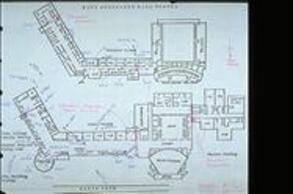
West Anchorage High School suffered extensive damage in the 1964 Alaska earthquake. Stress concentration at re-entrant corner caused damage in the concrete roof diaphragm of this reinforced concrete building. The left photo shows building damage, and floor plan drawing is shown on the right (Courtesy of the NISEE, University of California, Berkeley)
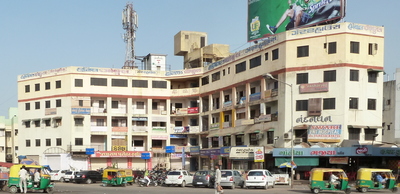
An L-shaped building with re-entrant corner, India (S. Brzev)